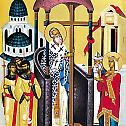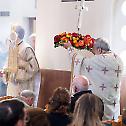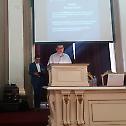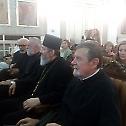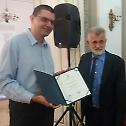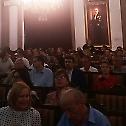Science
Martyr Sophia and her three daughters at Rome
30. September 2018 - 17:08
 The Holy Martyrs Saint Sophia and her Daughters Faith, Hope and Love were born in Italy.
The Holy Martyrs Saint Sophia and her Daughters Faith, Hope and Love were born in Italy.
Their mother was a pious Christian widow who named her daughters for the three Christian virtues. Faith was twelve, Hope was ten, and Love was nine. Saint Sophia raised them in the love of the Lord Jesus Christ. Saint Sophia and her daughters did not hide their faith in Christ, but openly confessed it before everyone.
Exaltation of the Holy Cross
27. September 2018 - 17:05he Feast of the Universal Exaltation of the Precious and Life-Giving Cross is celebrated each year on September 14. The Feast commemorates the finding of the True Cross of our Lord and Savior Jesus Christ by Saint Helen, the mother of the Emperor Constantine.
In the twentieth year of his reign (326), the Emperor Constantine sent his mother Saint Helen to Jerusalem to venerate the holy places and to find the site of the Holy Sepulchre and of the Cross. Relying upon the oral tradition of the faithful, Saint Helen found the precious Cross together with the crosses of the two thieves crucified with our Lord. However, Helen had no way of determining which was the Cross of Christ.
University Award for a theological achievement
17. September 2018 - 10:57- I feel the Veselin Lucic Award as a full confirmation of the return of our Faculty of Theology into the framework of the Belgrade University system - Mr. Vladislav Puzovic said.
The award of the Endowment of Veselin Lucic, which functions within the University of Belgrade, for the best scientific book of professors in 2017, i.e. the monograph Russian Paths of the Serbian Theology, Education of Serbs at Russian Theological Academies 1849-1917, was handed over to Dr. Vladislav Puzovic, associate professor of the Faculty of Orthodox Theology of the University of Belgrade, in the solemn hall of the Rectorate of the University of Belgrade on 11 September 2018.
Church New Year
14. September 2018 - 9:57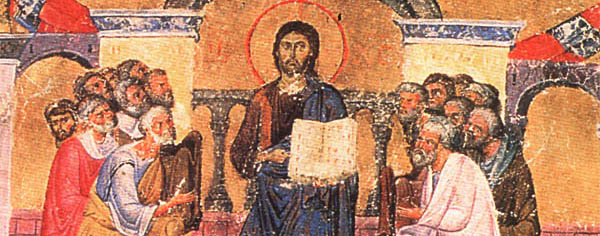 The first day of the Church New Year is also called the beginning of the Indiction. The term Indiction comes from a Latin word meaning, “to impose.” It was originally applied to the imposition of taxes in Egypt. The first worldwide Indiction was in 312 when the Emperor Constantine (May 21) saw a miraculous vision of the Cross in the sky. Before the introduction of the Julian calendar, Rome began the New Year on September 1.
The first day of the Church New Year is also called the beginning of the Indiction. The term Indiction comes from a Latin word meaning, “to impose.” It was originally applied to the imposition of taxes in Egypt. The first worldwide Indiction was in 312 when the Emperor Constantine (May 21) saw a miraculous vision of the Cross in the sky. Before the introduction of the Julian calendar, Rome began the New Year on September 1.
Translation of the relics of St Alexander Nevsky
12. September 2018 - 9:18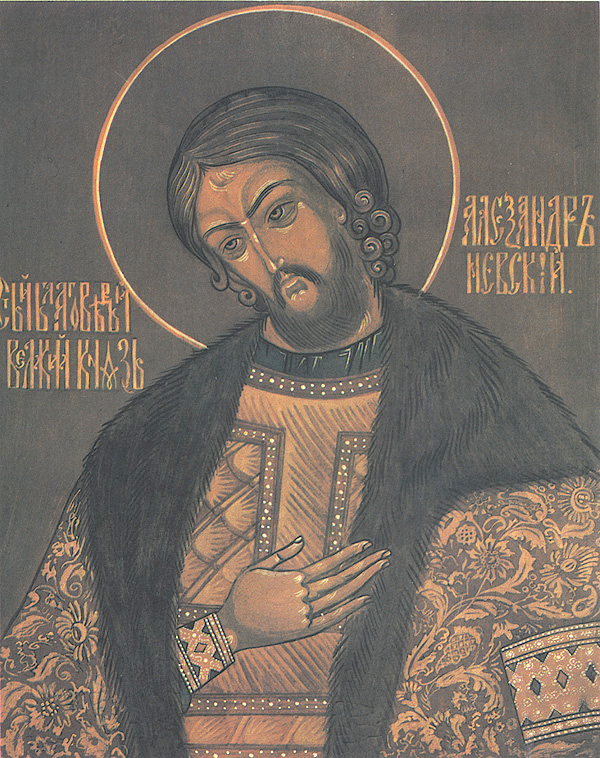 The Holy Prince Alexander Nevsky (in monastic schema Alexis) died on the return journey from the Horde at Gorodtsa on the Volga, on November 14, 1263, and on November 23, 1263 he was buried in the Cathedral Church of the Nativity Monastery in the city of Vladimir (Where there is a memorial to the holy prince. Another memorial is in the city of Pereslavl-Zalessk).
The Holy Prince Alexander Nevsky (in monastic schema Alexis) died on the return journey from the Horde at Gorodtsa on the Volga, on November 14, 1263, and on November 23, 1263 he was buried in the Cathedral Church of the Nativity Monastery in the city of Vladimir (Where there is a memorial to the holy prince. Another memorial is in the city of Pereslavl-Zalessk).
Veneration of the Prince began right at his burial, where a remarkable miracle took place. The saint extended his hand for the prayer of absolution (a written document placed in the coffin). Great Prince John (1353-1359), in his spiritual testament written in the year 1356, left to his son Demetrius (1363-1389), the future victor of the Battle of Kulikovo, “an icon of Saint Alexander.” The incorrupt relics of the holy Prince were uncovered, because of a vision, before the Battle of Kulikovo in the year 1380, and then they were sent forth for a local celebration.
Martyr Gorazd of Prague, Bohemia and Moravo-Cilezsk
4. September 2018 - 14:24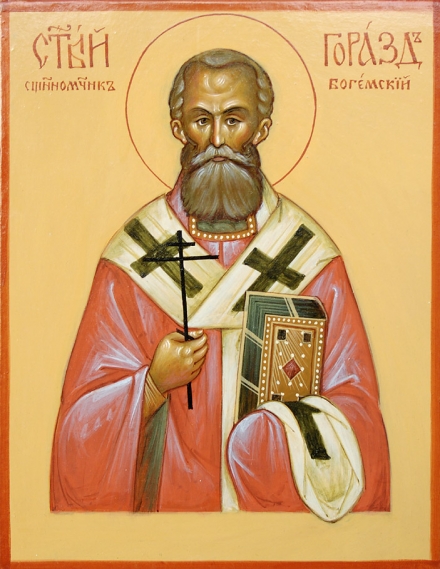 “I am the good shepherd. The good shepherd gives His life for the sheep” [John 10:11].
“I am the good shepherd. The good shepherd gives His life for the sheep” [John 10:11].
“O Lord, make this man also, who has been proclaimed a steward of the episcopal grace, to be an imitator of You, the true Shepherd, Who laid down Your life for Your sheep....” [Prayer of Consecration of a Bishop]. On September 25, 1921, these words were prayed over Father Gorazd Pavlik as he was consecrated the Bishop of Moravia and Silesia. It is doubtful that anyone in attendance that day, including the new bishop, expected that he would be called upon to live that prayer in a literal way.
Matthias Pavlik was born in 1879 in the Moravian town of Hrubavrbka in what would later become the Czech Republic. He was born into a Roman Catholic family, completed the Roman Catholic seminary in Olomouc and was ordained a priest.

